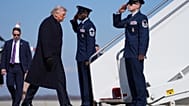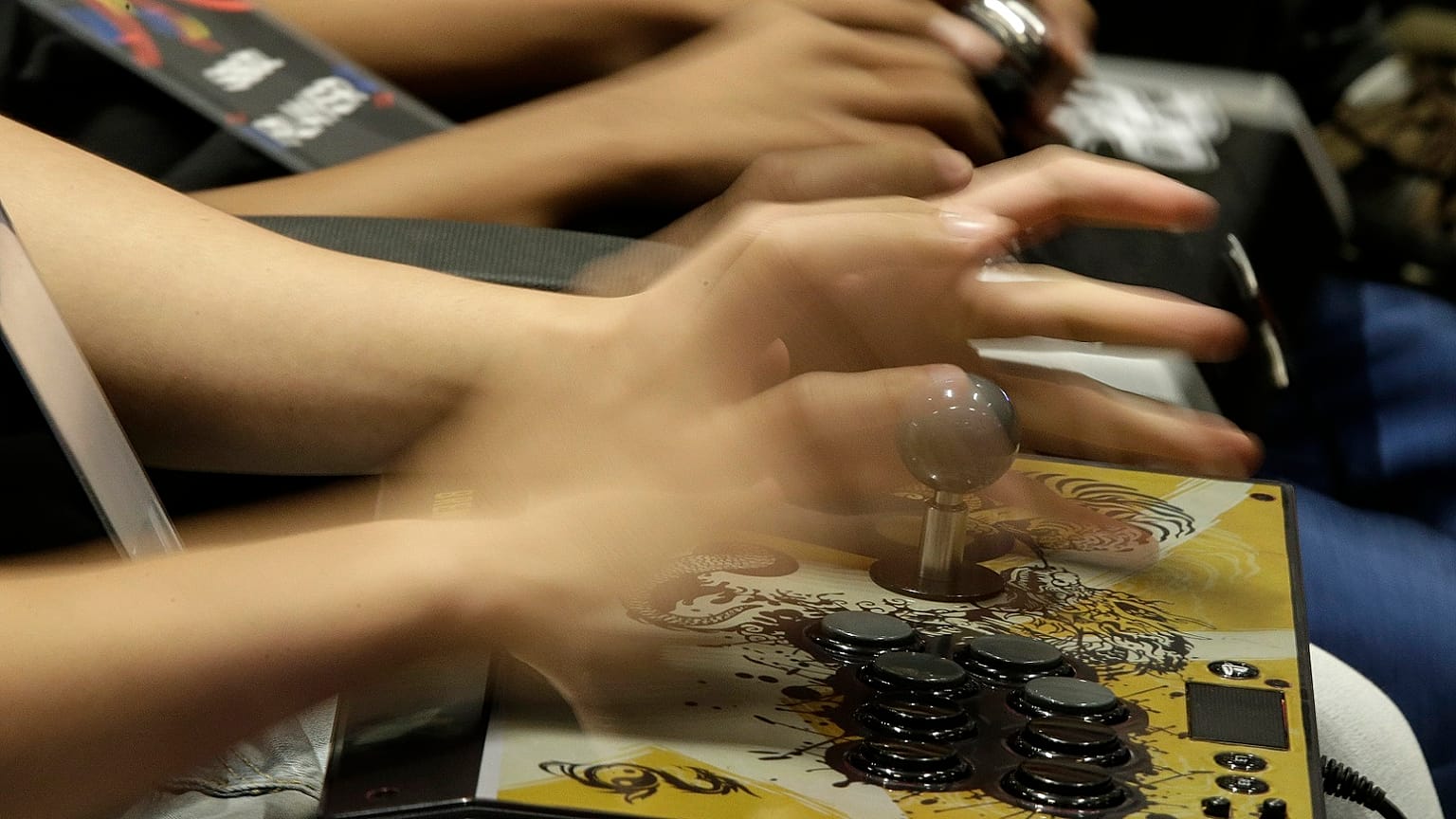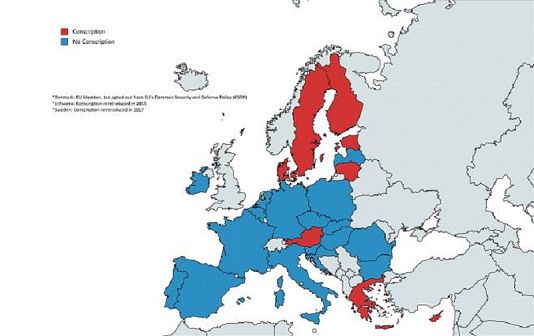Action video games specifically can promote a wide range of cognitive skills that are useful in a military setting, such as more accurate attention allocation, higher spatial resolution in visual processing and enhanced mental rotation abilities.
Europe is getting older and its armed forces are struggling to fill their ranks. Higher life expectancy, decreased mortality and fertility rates are transforming the population pyramid shape of the continent. Shrinking working age populations, changing lifestyle patterns and advantageous career possibilities in the private sectors makes it increasingly challenging for armed forces to get tech-savvy youth to suit up. In order to successfully portray itself as a global security provider and achieve its goal of strategic autonomy, the EU must have adequate military resources at their disposal, which include not just tanks, airplanes and ships, but also operators that are comfortable with high-tech equipment. Professional eSports programs are a surprisingly sensible, low-cost and highly-rewarding solution to this European recruitment problem.
 ADVERTISEMENT
ADVERTISEMENT
 ADVERTISEMENT
ADVERTISEMENT
Due to high costs and dubious necessity, mandatory military service has largely been abolished in the European Union, but the policy is still applied in a few member states.
To fill the new technologies and cyber domain skill gaps within the European defence sector, armed forces in Europe can do better than insult millennials with hopes of making them consider a career in the army. As a solution, the chiefs of the Bundeswehr (German Defence forces) have been considering recruiting other EU nationals. This is not a novel concept as seven out of the 27 EU member states accept foreigners into their armed forces in so some capacity. However, notwithstanding the criticisms that recruiting foreigners could potentially reduce ties between the military and the local population, make the state vulnerable to disloyal troops and international manipulation, and that the concept itself lays in normatively grey area, the policy could damage wider EU defence efforts as states with better career prospects, modern equipment and higher pay-grades would be more attractive options.
Lowering recruitment standards is also unacceptable. As such, recruits could jeopardise entire operations or significantly damage the reputation of a nation’s armed forces. Or, it could result in inadvertently providing gang members and other criminals with military skills and tactics, in turn risking the safety of law enforcement and the public. Gamers, therefore, are a sensible group to focus on to potentially fill the new technologies skill gaps in the Armed Forces.
Contrary to belief, scientific research indicates that violent video games have little to no impact on violent activity in society. In fact, action video games specifically can promote a wide range of cognitive skills that are useful in a military setting, such as more accurate attention allocation, higher spatial resolution in visual processing and enhanced mental rotation abilities. By targeting gamers, the Forsvaret (the Danish armed forces) easily found qualified applicants for their challenging flight leaders programme. The trials they conducted with Astralis, a professional Danish eSports team, showed that gamers have a good capacity for learning, strategic sense and ability to visualise, often remaining calm under pressure, having faster reaction times than others, quick decision-making and teamwork skills, and good orientation. The Germans, British and Dutch are also slowly following suit. The Bundeswehr was present at the most recent Gamescom in Cologne, specifically looking for people “with a taste for computers.” The Dutch armed forces recently established an amateur eSports team and competed in a Counter-Strike: Global Offensive (CS:GO) tournament. Although the team did not have a chance (and never expected) to win, the primary goal of the initiative was, once again, to scour for talent. Elements of the British Army’s eSports efforts have been running since mid-2019, when teams from across the army participated in the Insomnia 64 Gaming Festival in Birmingham. For their part, the Royal Air Force (RAF) recently opened a station gaming room, with PCs and consoles paid for by the RAF Central Fund as well as establishing Royal Air Force Video Gaming & eSports Association (RAF VGEA). The RAF VGEA team, like the army’s, participates in gaming conventions. The US Army, however, is arguably leading in eSports, as it was the first to established a full-time professional eSports team, the USAE, back in November 2018. It currently comprises of 16 Active Duty and one Army Reserve soldiers who come from all over: IT, Military Police, Infantry, Maintenance, Field Artillery and even Special Forces, to name a few examples.
The primary goal of the team is to create awareness about army careers and benefits, so the field diversity is beneficial. The soldiers are assigned to the team as part of the broadening assignment, so they come out of their regular duties and serve as a player of the team for three years before returning to their original duties afterwards. The army knows that gaming teens - including girls - have a much higher interest in new technologies and cyber domain than those who don’t, and that 83% of male millennial gamers in the US - their primary target audience - most often play Action games. The team also regularly features on Twitch, a video live streaming service, since majority of Twitch eSports fans in the US spend more time interacting with gaming personalities rather than actual eSports content. Not surprisingly, US Air Force and US Navy recently jumped into the eSports scene as well by partnering with major eSports event organizers for advertising and community outreach opportunities. They also stream on Twitch.
In Europe, the eSports industry is booming as well. The European market has seen a growth of around 24% in revenues and 28% in audience since 2016, reaching €240 million in earnings and 86 million people. In France, Germany, Spain and the UK, the share of gamers among those who are aged 15-24 and 25-34 are 74% and 67% respectively. With low set-up costs, averaging just $41,000 (€37,600), and potential high rewards of recruiting tech-savvy STEM-orientated youth, military leaders should not hesitate to establish full-time professional eSports teams.
Additionally, engaging not only civilian but also military gamers in Europe and around the globe in a friendly competition would build mutual trust and bridges, potentially contributing to European armed forces’ structural integration and better alliance relationships.
- Tomas Jevsejevas is a researcher who works on issues related to Indo-Pacific Security, China and EU-Asia relations.
____________
Are you a recognised expert in your field? At Euronews, we believe all views matter. Contact us at view@euronews.com to send pitches or submissions and be part of the conversation.















